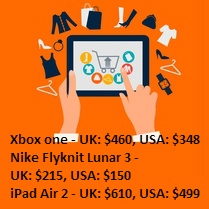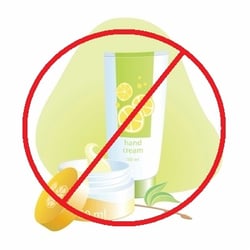 The European Citizens’ Initiative (ECI) is an alliance of >380 European organizations campaigning against TTIP and the Comprehensive Economic and Trade Agreement (CETA), a free trade agreement between Canada and the EU. Members of ECI “believe that these two trade and investment agreements must be stopped because they pose a threat to democracy, the rule of law, the environment, health, public services as well as consumer and labour rights”. The basic ECI premise is that these agreements “increase the power of multinationals at the expense of democracy and the general good”. During the past month, there have been hundreds of anti-TTIP protests organized across Europe, none more so than in Germany.
The European Citizens’ Initiative (ECI) is an alliance of >380 European organizations campaigning against TTIP and the Comprehensive Economic and Trade Agreement (CETA), a free trade agreement between Canada and the EU. Members of ECI “believe that these two trade and investment agreements must be stopped because they pose a threat to democracy, the rule of law, the environment, health, public services as well as consumer and labour rights”. The basic ECI premise is that these agreements “increase the power of multinationals at the expense of democracy and the general good”. During the past month, there have been hundreds of anti-TTIP protests organized across Europe, none more so than in Germany.
A Free trade area (FTA), the fundamental principle of one market and free movement of goods and services, is one of the EU priorities. Arguably, consumers will be the greatest beneficiaries of TTIP, on both sides of the Atlantic. There are many egregious examples of price and service differentials between the USA and the EU where manufacturers and service providers leverage the market distortions to inflate prices and provide poor service at the expense of our unknowing, long suffering consumer.
There is a broad level of EU agreement that TTIP presents 7 issues of concern: consumer, worker, environmental, health, Investor/State Dispute Settlement mechanisms (ISDS), regulatory cooperation and transparency. The Bureau Europeen des Unions de Consommateurs (BEUC, a French acronym) is a European Consumer Organization, comprising 40 member organizations, in 31 European countries and they declare that they “are a non-governmental organisation whose job is to bring the voice of Europe’s consumers to the European Union legislative institutions of Commission, Parliament and Council”. BEUC prioritizes 3 main risks to the European consumer:
- Chemicals banned in the EU, but used in products and cosmetics in the USA, might find their way onto European shelves.
- Access to the European market of food that has not been produced according to European safety standards. The concept of food safety in the USA is based on “reasonable certainty of no harm” and not on the “precautionary principle” as it is in the EU.
- Undermining data protection standards. In the EU, the rights to privacy and protection of personal data are fundamental – broad in scope and linked to strong sanctions. In the USA, privacy is simply a matter of consumer protection in a very limited number of areas such as with children and the internet, health and financial services.
To deal with the 1st, cosmetic products are an indispensable part of everyone’s daily routine, so a great place to start and look at some of the TTIP consumer relevant detail. Cosmetics range from everyday hygiene products s uch as soap, shampoo, deodorant, and toothpaste to luxury beauty items including perfumes and makeup. The European Commission (EC) requires that these products are regulated at European level to ensure consumer safety and to secure an internal market for cosmetics. BEUC points out that the EU consumer uses on average 15 cosmetic products a day, so we are talking a lot of product and money, led by females in France and Italy. Today in the EU we mostly unknowingly enjoy the benefits.
uch as soap, shampoo, deodorant, and toothpaste to luxury beauty items including perfumes and makeup. The European Commission (EC) requires that these products are regulated at European level to ensure consumer safety and to secure an internal market for cosmetics. BEUC points out that the EU consumer uses on average 15 cosmetic products a day, so we are talking a lot of product and money, led by females in France and Italy. Today in the EU we mostly unknowingly enjoy the benefits.
In order to protect the EU consumer, BEUC wants TTIP regulation with regards to i) banned substances ii) labelling and iii) regulation of emerging technologies. To give this some context; the figures, which amazed me, show that in the EU we have a list of 1,377 banned substances from use in cosmetics and to crown that off we have additional regulation applied to >250 ingredients. If you would like to check the list of banned substances out, here you go. By contrast, in the USA there are only approximately 11 substances that have been banned from cosmetics at federal level. Furthermore, in the EU we have 26 fragrances (suspected as causes of allergies) that are required to be listed in the ingredients of cosmetic products. Obligatory EU package and product labelling ensures people can understand what they are buying and so avoid certain substances, ingredients and fragrances. Next let’s look forward to emerging technologies and cosmetics, such as nanomaterials. Unsure of implications for health and the environment, companies seeking to include nanomaterials in their cosmetic products must notify the EC six months in advance before placing it on the market. If approved there is, of course, a labelling requirement. The above three examples demonstrate the detail of the issues that are currently in the well cleansed and moisturized hands of the EU and US negotiating teams.
The macro picture is that today we enjoy the benefits of the many FTAs that went before over, let's just say, the past half century. So embedded are these agreements, and their benefits so much a part of our daily lives, that as consumers we have forgetten the source. That is until something happens to break that process. A recent example being the Russian consumer having gotten used to a daily surfeit of US and EU cosmetic and food products, is now deprived of those by the Russian government's own sanctions. The EU consumer stands to continue along the inexorable path of benefits from a growing, enlarged FTA, that the TTIP agreement presents. Our friends at BEUC list 4 principal benefits:
- Lower prices and a wider variety of traded goods and services.
- The elimination of customs duties on goods personally imported from the USA.
- A reduction of excessive pricing of transatlantic telecommunications.
- Common EU-US traceability and alert systems for products and better exchanges of information between regulatory agencies.
Pricing is something we can all immediately associate with. Back in November 2014, the Daily Mail ran one of its attention seeking headlines entitled “How it's cheaper to FLY to the US and buy an Apple iMac than pay for one in the UK: MailOnline investigation reveals how tech firms are bumping up prices in Britain”. The article went through a catalog of examples, well beyond iMacs and tech products, where UK prices are meaningfully higher, well beyond any cost justification, see table below.
Source: Daily Mail
The reverse is also true. US consumers are paying higher prices than Europeans for certain EU luxury goods (search out Prada bags) and foodstuffs (try buying some French cheeses). TTIP will have the great market levelling (invisible hand) impact, as consumers, and businesses supplying to those consumers, are able to trade goods and services across and within the world’s two largest trading blocks. So in conclusion, looking at these two examples, if TTIP is negotiated and concluded well for the consumer, and there are powerful organizations involved in the process, Americans and Europeans should be able to enjoy a greater variety of better regulated products and services at lower prices. I’m in!

